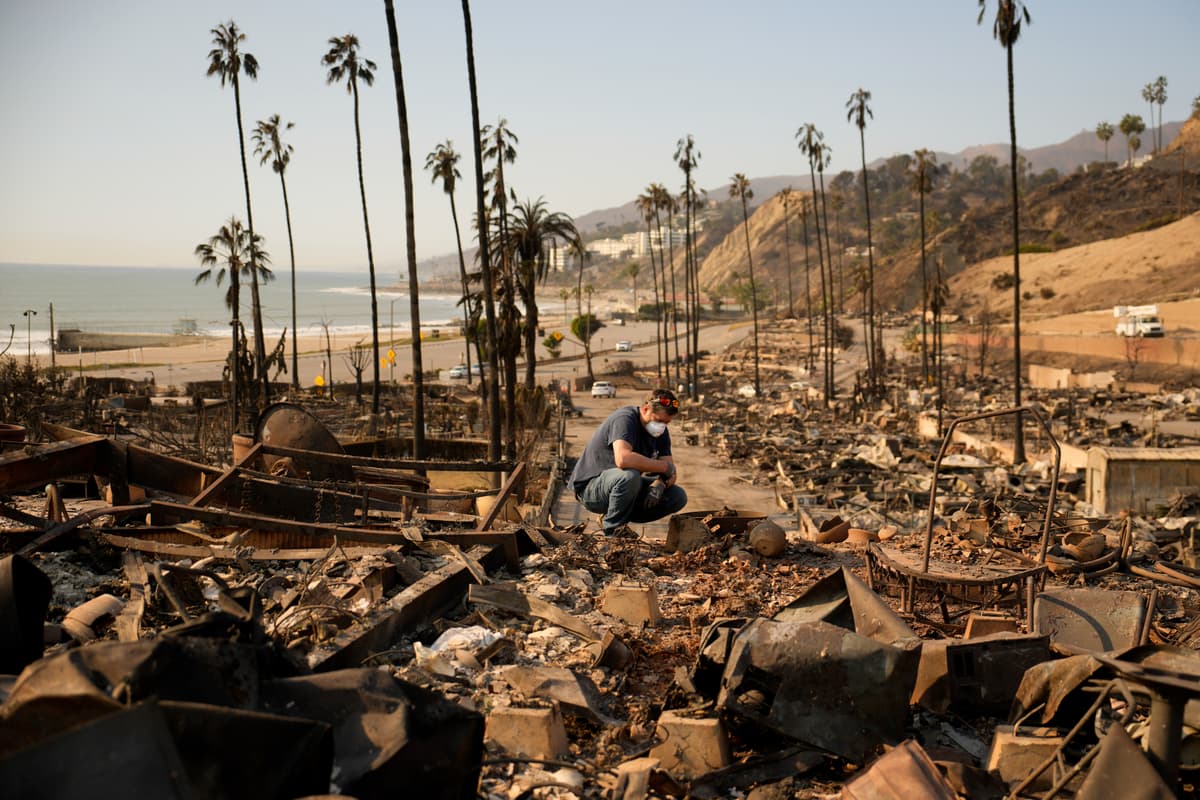Newsom Accused of ‘Needlessly’ Delaying Recovery After Wildfires With New Limitations on Sales of Devastated Properties
A critic of price controls says Governor Newsom ‘infantilizes’ homeowners by ‘assuming they cannot make rational decisions about their own property.’

As property owners in California seek to pick up the pieces after the devastating wildfires around Los Angeles, the state government is taking steps that critics say could prolong the time it takes for the area to recover.
Mr. Newsom has issued an executive order prohibiting people from making an “unsolicited offer to an owner” of property in areas impacted by the fires for an “amount less than the fair market value of the property…on January 6, 2025.” The ban will be in effect for three months.
The order also directs the state’s Department of Real Estate to “expeditiously determine the nature and scope of any unlawful, unfair, or fraudulent practices employed by any individual or entity seeking to take advantage of property owners in the wake of this emergency.”
In a video posted on X, Mr. Newsom touted the order as an attempt to prevent “predatory” developers from swooping in and swindling property owners by making unsolicited offers to buy their land at prices “significantly below market value.”
“This predatory behavior is disgusting in the best of times, and of course, here, in the midst of this tragedy at scale, it’s disgraceful,” he said.
Mr. Newsom also warned potential buyers to “make no mistake” that it is a “prosecutable crime” to make an unsolicited offer to buy a home below the pre-fire market value.
The order is similar to one issued by the governor of Hawaii, Josh Green, after wildfires swept through the island of Maui in 2023. In the wake of the devastation, residents of the island told several news outlets they were anxious about the offers and concerned that developers could take advantage of property owners distraught by the devastation if they accepted offers lower than they would have under normal circumstances.
Critics of Mr. Newsom’s ban point out that property owners do not have to accept offers to sell their land, and they can reject such proposals if they feel the price is too low.
The R. Evan Scharf Chair for the Public Understanding of Economics at the libertarian Cato Institute, Ryan Bourne, tells the Sun that Mr. Newsom’s order will “needlessly slow Los Angeles’ recovery.”
“While the intention — to protect vulnerable homeowners from exploitation — may seem noble, the policy introduces several distortions that will undermine rebuilding,” he said. “In part due to government price controls on insurance, some homeowners were uninsured or only had bare-bones FAIR plan coverage that may not fully compensate them for their losses from the fires.
“Many homeowners may therefore benefit from selling land given their financial situation, even at a discount from previous land price levels given the impossibly high costs of them rebuilding,” Mr. Bourne adds. “Unsolicited offers could present them with new opportunities and a way out.”
Mr. Bourne also says that the ban on unsolicited offers “infantilizes homeowners” by “assuming they cannot make rational decisions about their own property.”
While Mr. Newsom called such offers “predatory,” Mr. Bourne says there could be many people who decide they do not want to rebuild or who cannot afford to do so, who may feel that an unsolicited offer is a way to “cut their losses and move on.”
The governor was also criticized for his attempt at price controls as others suggested his executive order enforcing the state’s price-gouging law could make it harder for people who lost their houses in the fires to rent homes in the area.
Under the law, after an emergency declaration, landlords with existing rental properties are unable to raise asking rents by more than 10 percent. A real estate development professor at the Sol Price School of Public Policy at the University of Southern California, Mott Smith, told the Center Square, “In a state of emergency, new rentals can’t be priced higher than 160 percent of the fair market rents established by HUD.”
“So if someone in Santa Monica decides to put their three-bedroom house up for rent, they couldn’t charge more than $6,736 for it. That likely wouldn’t cover the mortgage for many homes in the area,” he said. “Without an executive order from the governor that excludes this particular restriction from the emergency declaration, this could become a barrier to new homes coming on the market for rent.”
The attorney general of California, Rob Bonta, is warning that people who violate the price-gouging law could face fines of up to $10,000 and imprisonment.
Despite the price-gouging law, some landlords are raising rents nevertheless. The New York Post reports one Los Angeles-based realtor, Laura Kate Jones, found that rents for several properties have risen by as much as 20 percent overnight. While the prices are high, they are not stopping some desperate, displaced people from renting.
Still, some are highlighting what appears to be an inconsistency in Mr. Newsom’s attempts to use the levers of government to control prices and the difficulties they could pose to people trying to rebuild and offer their services to help the area recover. The vice president of Cato, Scott Lincicome, wrote succinctly on X, “Prices can’t be too high (gouging!) Prices can’t be too low (predatory!) Next up: Prices can’t be in the middle (collusion!).”

